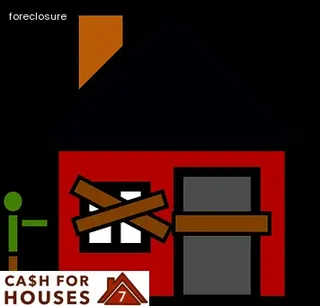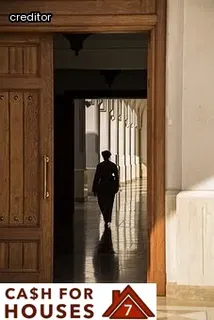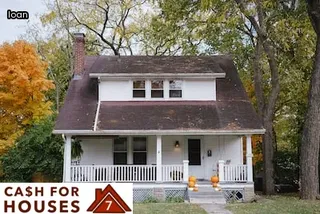In California, the Homeowner Bill of Rights (HBOR) was created in 2012 to protect homeowners from unfair foreclosure practices. This law outlines a variety of regulations for banks, loan servicers and other mortgage players involved in foreclosures.
It requires lenders to provide a single point of contact for borrowers, explain the foreclosure process and provide information on alternative options. The law also prohibits dual tracking—the act of initiating the foreclosure process while simultaneously negotiating with the borrower on an alternative solution—and allows homeowners to sue their lender if they violate HBOR.
Additionally, it requires lenders to wait at least 30 days after providing notification before moving forward with a Notice of Default or Trustee Sale. Finally, it provides certain protections against deficiency judgments and limits when lenders can conduct a post-foreclosure sale eviction.
Together, these measures help ensure fair treatment for homeowners throughout the entire foreclosure process.

Navigating California foreclosure laws can be a daunting task. It is important to understand the most common foreclosure processes in order to make informed decisions when facing a house foreclosure.
In general, there are two basic types of foreclosures in California: judicial and nonjudicial. Judicial foreclosures are those that require court action, while nonjudicial foreclosures do not involve court proceedings, but instead are administered by the lender or servicer.
In both processes, the homeowner will receive a notice of default from their lender or servicer which will outline the amount of overdue payments owed and provide an opportunity for the homeowner to cure the default within a certain timeframe as defined by law. If all due amounts are not paid by this deadline, then the property may be sold at public auction to satisfy the debt owed.
For nonjudicial foreclosures, a Notice of Trustee’s Sale must also be published and posted in order for the sale to occur. There are several other steps involved with navigating these processes including obtaining an appraisal of value, responding to notices from lenders or servicers, and understanding how each process affects your rights as a homeowner.
Navigating California's foreclosure laws can be complicated, but understanding the typical process will help you make the best decisions for your financial future. The foreclosure process in California generally follows this order: Notice of Default (NOD), Notice of Sale (NOS), and a Trustee's Sale.
After receiving an NOD, homeowners have 90 days to pay off their loan balance or reach a repayment plan with the lender. If no payment is made within 90 days, the lender will issue an NOS which sets a date for a Trustee's Sale.
At the Trustee's Sale, any unpaid mortgage balances plus late fees and other associated costs are paid from the proceeds of the sale of the property. If these costs exceed what is made at the sale, there may be a deficiency judgment against the homeowner that requires additional payments.
Homeowners should always seek legal advice throughout this process to ensure they understand their rights and obligations as defined by California law.

Navigating California foreclosure laws can be a complex and stressful process, but understanding the basics is key to successfully navigating the system. Foreclosure in California is a legal process by which a lender attempts to recover the balance of a loan from a borrower who has defaulted on their mortgage payments.
During this process, the lender may choose to repossess the home and sell it in an effort to recoup some of their financial losses. To begin the foreclosure process, the lender must first file a Notice of Default with county records and then publish it in a local newspaper for three consecutive weeks.
From that point, homeowners have three months to bring their mortgage payments up-to-date and save their home from foreclosure. However, if they are unable to pay off their loan within those three months, they will be served with a Notice of Sale which gives them at least twenty days before the home can be sold at auction.
Homeowners can avoid foreclosure by refinancing or restructuring their loan terms or entering into mediation with their lender. They may also qualify for government assistance programs designed to help struggling borrowers keep their homes.
While navigating California foreclosure laws can be daunting, knowing these basics can help homeowners make informed decisions during this difficult time and potentially save them from losing their homes.
When it comes to facing a foreclosure in California, there are certain options that homeowners can explore in order to potentially avoid the process. In general, preforeclosure is a period of time when a homeowner facing financial difficulties has the chance to look for alternatives and attempt to regain control of their property.
To start, homeowners should understand the process of foreclosure and know their rights as outlined by California state law. Additionally, homeowners should take advantage of free resources available, such as legal advice from a housing counselor or lawyer specializing in foreclosure prevention.
A counselor can help provide guidance and inform them about specific state programs or possible loss mitigation services that may be able to assist with payments. Furthermore, it is important for homeowners to stay organized and keep records of all communications with lenders or loan servicers regarding potential payment arrangements.
It is also beneficial for homeowners to seek out professional assistance from an experienced real estate agent who can guide them through the process and assess any offers they receive from investors interested in purchasing the property during preforeclosure.

When facing a house foreclosure in California, it is important to understand the process and how to halt the proceedings. Knowing your rights as a homeowner can help you navigate California foreclosure laws and protect your home from repossession.
The first step for homeowners in California is to contact the lender as soon as possible. Doing so can help prevent or delay foreclosure proceedings, allowing more time to develop an alternative plan of action.
If the initial conversations with the lender do not result in a satisfactory resolution, homeowners can seek assistance from qualified legal professionals or non-profit organizations that specialize in helping those facing foreclosure. Additionally, filing for bankruptcy may be another option to stop or postpone foreclosure proceedings; however, this should only be done after consulting with an attorney who has experience with bankruptcy law.
Finally, understanding your rights under state law is essential when attempting to halt a foreclosure in California. Being aware of these laws and taking necessary steps early on will give homeowners the best chance of successfully stopping their house from being foreclosed upon.
When facing a house foreclosure in California, it is important to understand the laws related to deficiency judgments. In California, a deficiency judgment is a court order that requires borrowers to pay lenders any remaining debt after the seller’s property has been sold at auction.
These judgments are usually calculated by subtracting the amount of money received from the sale of the house from what was originally owed on the loan. If a borrower has taken out an unsecured loan, such as a home equity line of credit or second mortgage, they may also be required to pay back any remaining balance even if their house doesn't cover the full amount.
Deficiency judgments can also be used by lenders to collect money from co-signers when borrowers are unable to repay their loans. However, because these judgments can have long-term financial implications for borrowers, certain state laws exist in California that protect them from excessive collection efforts by lenders.
For example, deficiency judgments cannot exceed the difference between what was owed and what was received from the sale of the house, and there are limits on how much interest can be charged on delinquent accounts. Knowing these laws ahead of time can help borrowers make informed decisions while navigating through the foreclosure process.

Navigating California foreclosure laws can be daunting, especially when it comes to understanding timeframes for moving out after a foreclosure. In California, the homeowner must vacate the property within 3 months from the date the court confirms the foreclosure sale.
This timeline can be extended if there are extenuating circumstances, such as a tenant occupying the premises or if the buyer of the foreclosed property agrees to an extension. If a homeowner does not vacate after 3 months, they may be held liable for rent and damages until they move out.
It is important for homeowners facing foreclosure to understand all of their rights and obligations in order to protect themselves legally and financially.
When a homeowner is facing foreclosure, it can be difficult to know what steps to take next. Seeking professional assistance during the foreclosure process is essential in order to ensure that all legal requirements are met and that the homeowner’s rights are protected.
A foreclosure attorney or financial advisor can provide guidance on navigating California foreclosure laws and provide advice on what options are available for homeowners in order to prevent a foreclosure from happening. Working with an experienced attorney can help homeowners understand their rights and responsibilities under California law, as well as how to negotiate with lenders in order to come up with a workable solution.
With the right help from professionals, it may be possible for homeowners to avoid or minimize the financial damage of a house foreclosure.

When homeowners apply for a modification to their mortgage, they are seeking to make changes to the terms of their loan in order to avoid foreclosure. In order to be eligible for a modification, borrowers must meet certain criteria set forth by the lender and provide proof of income.
If approved, the lender will generally lower the interest rate or extend the repayment period on the loan. Modifications can also include other measures such as principal forbearance and payment deferrals.
It is important for borrowers to understand that modifications are not guaranteed and could be denied if lenders deem them too risky. Furthermore, lenders may require further documentation before making a decision on whether or not to approve the modification.
To ensure that all options have been explored when facing foreclosure in California, it is important to consult with an attorney who specializes in foreclosure law and understands how best to navigate these complex laws.
When a home is foreclosed in California, the consequences of the foreclosure sale can be severe for both the homeowner and the lender. Homeowners may experience credit damage, debt collection efforts or even a deficiency judgment depending on whether their loan was recourse or non-recourse.
The lender may also suffer losses through the decrease in value of the property or other expenses associated with completing a foreclosure sale. Furthermore, if a deficiency judgment is issued against the homeowner, they are liable to pay any unpaid balance on the loan regardless of how much money was gained from the sale of their home.
Ultimately, navigating California's foreclosure laws requires careful consideration of all potential outcomes to ensure that everyone involved understands what could happen before taking action.

When a homeowner in California is facing foreclosure, eviction protocols are an important element to understand. Once the foreclosure process has concluded, the lender will be able to take ownership of the home and must follow state-mandated rules when evicting the occupants.
The first step for a lender is to file an Unlawful Detainer action in court. This allows for a judge to decide if the lender is entitled to possession of the property and if so, an order for eviction will be issued.
A sheriff or marshal then serves a notice to vacate on all occupants and sets a deadline for them to leave; after this point, they may be forcibly removed from their home. Tenants who have lease agreements with the homeowner must also be given at least 90 days' notice before they can be evicted.
Once all occupants have left, the lender will gain full access and title to the property. It's important that homeowners facing foreclosure in California understand these eviction protocols as part of navigating their situation in order to minimize disruption and ensure compliance with state laws.
When facing a home foreclosure in California, it is important to know your rights and options to stop the process. One of the most effective ways to do this is to seek legal help from an experienced attorney who specializes in foreclosure law.
A professional can provide advice on how best to handle the situation and will be able to explain any legal procedures that may need to be followed. They may also be able to negotiate with lenders on behalf of their clients, helping them to avoid or delay the foreclosure process.
Furthermore, they can help homeowners determine if there are any potential defenses that could be employed for their case. It is also possible for an attorney to advise homeowners on other potential solutions such as loan modification, bankruptcy filing, or short sale.
Ultimately, working with a qualified lawyer is essential when navigating California’s foreclosure laws and trying to protect one’s home from being taken away.

Many homeowners facing foreclosure in California may not be aware of the free debt evaluation services available to them. These services can help assess a homeowner's individual financial situation and provide information on their options for avoiding foreclosure.
Professional counselors from accredited organizations are available to discuss potential strategies to avoid foreclosure and provide unbiased advice on how to manage finances. Services such as budgeting, credit counseling, and housing counseling can help homeowners make informed decisions about their finances and prepare them for future financial stability.
Additionally, these counselors are trained to assist with the paperwork associated with loan modification or refinancing, which can help keep a home out of foreclosure. Homeowners should take advantage of these free debt evaluation services if they find themselves facing a house foreclosure in California.
When facing a house foreclosure, it is important to weigh the pros and cons of allowing your house to go into foreclosure. One of the main advantages is that a foreclosure can provide relief from an unaffordable mortgage payment.
In addition, a foreclosure does not necessarily have a long-term negative impact on one's credit score. On the other hand, there are some potential disadvantages.
For example, in California, if the lender sells the foreclosed property for less than the amount owed on it, they may sue you for what is called "deficiency judgement." Furthermore, in California, debtors may be subject to pay state and federal income taxes on any forgiven debt.
It is essential to research and understand all aspects of California foreclosure laws in order to make an informed decision about whether or not to allow your house to go into foreclosure.

When facing a foreclosure, it is important to understand California's foreclosure laws and the best strategies for working with lenders to negotiate a mortgage payment plan. Knowing your rights and options can help you take proactive steps to ensure that you are able to stay in your home.
First, research local foreclosure laws and procedures so that you understand how long the process will take and what options are available. Then, contact your lender as soon as possible and explain your financial situation.
It may be beneficial to work with a foreclosure attorney or housing counselor who can help you develop a plan for managing your debt. Be sure to thoroughly document any agreements between yourself and the lender, including any changes in payment amounts or terms, in order to protect yourself legally.
Additionally, if you have other debts related to the foreclosure such as late fees or penalties, seek advice on how best to negotiate these costs before making any payments. Finally, if possible, consider refinancing or obtaining loan modifications that can lower your monthly payments or provide more time for repayment.
With careful planning and strategic negotiation techniques, it is possible to successfully navigate California's foreclosure laws and secure a manageable mortgage payment plan.
Navigating California foreclosure laws can be confusing and overwhelming. Homeowners facing a house foreclosure may feel hopeless, but there are options available to help them obtain financial relief from unaffordable mortgages.
Depending on the type of mortgage loan taken out, homeowners may be able to refinance their existing loan or apply for a loan modification in order to reduce their monthly payments. In some cases, it may even be possible to qualify for principal reduction or forbearance, which can help bring down the amount owed or reduce payments for a certain period of time.
For those struggling with their mortgage, consulting with an experienced lawyer can help shed light on the best course of action and provide guidance through the legal process. Additionally, government-sponsored programs such as HARP (Home Affordable Refinance Program) and HAMP (Home Affordable Modification Program) offer assistance to borrowers who meet specific criteria in order to make their mortgages more affordable.
Although each individual’s situation is different, it is important for homeowners to know that help is available and take advantage of any resources that may provide financial relief.

Navigating California foreclosure laws can be a daunting task, especially during the COVID-19 pandemic. Many homeowners are facing possible eviction and are in need of assistance in order to avoid foreclosure of their home.
Although there is no one-size-fits-all solution, there are multiple resources available to help those affected by the pandemic to stay in their homes. The CARES Act provides financial assistance for those struggling with mortgage payments and other housing costs.
Additionally, the Federal Housing Finance Agency (FHFA) has created a program that allows homeowners who have been impacted by the coronavirus to apply for forbearance on their mortgages and refinance their loans into more affordable terms. Finally, state programs such as the California Emergency Solutions and Housing Program provide additional assistance to help families stay afloat during these difficult times.
It's important to take advantage of all available resources so that homeowners can remain in their homes during this crisis.
Once a foreclosure has been completed, homeowners may be faced with the challenge of navigating post-foreclosure opportunities. The first step is to understand what rights and protections are available under the law.
In California, for example, there are several resources available to help those who have gone through a foreclosure and are attempting to rebuild their lives. Homeowners should familiarize themselves with state laws and regulations related to foreclosures as well as any federal programs that may provide assistance in securing new housing or financial stability.
Additionally, it is important to explore options such as loan modification programs or debt relief plans that can help alleviate some of the financial burden associated with a foreclosure. Finally, it is important to consider the possibility of renting out the home while looking for another property that better suits one’s needs.
By understanding the post-foreclosure landscape, homeowners can make informed decisions and take advantage of all the options available.

Navigating California foreclosure laws can be difficult. It is important to be aware of the risks associated with foreclosure and to be aware of potential scams.
It is important for homeowners to understand their rights and responsibilities under California law, so that they can make an informed decision regarding their housing situation. To prevent foreclosure scams, homeowners should never sign a contract or document without reading it carefully and understanding all the terms fully.
Homeowners should also never pay upfront fees for services related to preventing foreclosure or any other type of loan modification. Additionally, homeowners should not give anyone access to their personal financial information until they are sure that the person is legitimate and that they can trust them with such sensitive information.
Finally, when seeking help with a home loan or facing a house foreclosure, it is important to research all available resources and options before making a decision. Doing so will ensure that homeowners are able to make an educated decision about the best course of action for their housing situation in light of California foreclosure laws.
Navigating California Foreclosure Laws can be challenging, but understanding the foreclosure process is key when facing a house foreclosure. In California, it typically takes around 120 days for a lender to initiate a foreclosure process on a home.
This timeline begins after the borrower has missed three consecutive monthly loan payments. Once the process kicks off, the homeowner will receive two documents: a Notice of Default (NOD) and a Notice of Sale (NOS).
The NOD gives homeowners 90 days to pay off their loan balance or enter into an agreement with their lender. If neither of these options is pursued, the NOS allows lenders to sell the house at a public auction.
The NOS must be served 20 days in advance of the sale, giving homeowners one last chance to work out a repayment plan or refinance their loan before losing their property. By understanding the timeline and taking action proactively, homeowners can reduce the chance of experiencing an unnecessary foreclosure in California.

In California, a foreclosure can stay on your record anywhere from 7 to 10 years. The exact amount of time depends on the type of foreclosure and the individual's credit score.
A judicial sale (which is when a court determines the terms of a foreclosure) will generally stay on your record for longer than a private sale (which is when you sell the property directly to an investor). Even after the foreclosure has been fully processed, it can still affect your credit score and ability to get loans in the future.
It’s important to understand that even if you have already completed a foreclosure, there may be other actions you can take—such as enrolling in a credit counseling program—that can help improve your future financial situation.
In California, the number of missed payments before a home faces foreclosure varies based on the loan's terms and conditions. Generally speaking, a homeowner must be in default for at least 90 days and have three consecutive unpaid payments before lenders can begin the foreclosure process.
Lenders may also start foreclosure proceedings if a borrower is unable to make payments that are significantly higher than their original loan amount. In addition, some mortgage companies have specific policies regarding when they will begin the foreclosure process.
It is important for homeowners to understand these policies and procedures in order to navigate California's foreclosure laws effectively.
When it comes to navigating California foreclosure laws, one of the most important questions to ask is: what is the downside of a foreclosure? Foreclosure can have devastating consequences for homeowners in California, and can impact more than just their financial situation. Many people facing a house foreclosure may experience mental health issues such as depression and anxiety due to the uncertainty of it all.
The risk of homelessness looms over many individuals in this situation, as they are unable to afford rental or mortgage payments while also dealing with legal fees and other costs associated with the foreclosure process. Due to the complexity of California's foreclosure laws, hiring an experienced attorney is essential in order to understand all potential outcomes and any potential recourse for mitigating some of these damages.
It's important for anyone facing a house foreclosure in California to be aware that there are significant risks involved beyond just financial loss.
A: Under California foreclosure laws, homeowners have certain rights during the foreclosure process. These include the right to receive notice of a pending foreclosure and the right to be heard in court before a foreclosure order is issued. Homeowners may also have options for avoiding foreclosure, such as entering into loan modification or forbearance agreements with their lender, applying for government assistance programs, filing for bankruptcy protection, or pursuing a short sale or deed-in-lieu of foreclosure agreement.
A: In California, under the Homeowner Bill of Rights, homeowners have certain protections during the foreclosure process. These protections include the right to a single point of contact at the lender or servicer who can answer questions and provide assistance, a written notice before any action is taken to foreclose on a home, and the right to reinstate or pay off the loan up until five business days before the scheduled foreclosure sale.

A: Depending on your financial situation, you may be able to use Chapter 7 or Chapter 13 bankruptcy to help protect your home from foreclosure. In Chapter 7 bankruptcy, certain debts can be completely discharged, including the mortgage debt. In Chapter 13 bankruptcy, you can develop a three- to five-year repayment plan to pay off the mortgage arrears over time while keeping your home. Consult with a qualified attorney to discuss all of your options.
A: To avoid letting your house go into foreclosure in California, you should stay up-to-date on mortgage payments and become familiar with the state's foreclosure laws. You may also want to consider talking to a lawyer or housing counselor for advice.
A: If you are facing a foreclosure in California, you may be able to file for Chapter 7 or Chapter 13 bankruptcy. Filing for either type of bankruptcy can provide relief from creditor harassment and other collection activities, as well as potentially stop or delay foreclosure proceedings on your home. It is important to consult with a qualified attorney to discuss your specific situation and determine which bankruptcy option is best for you.